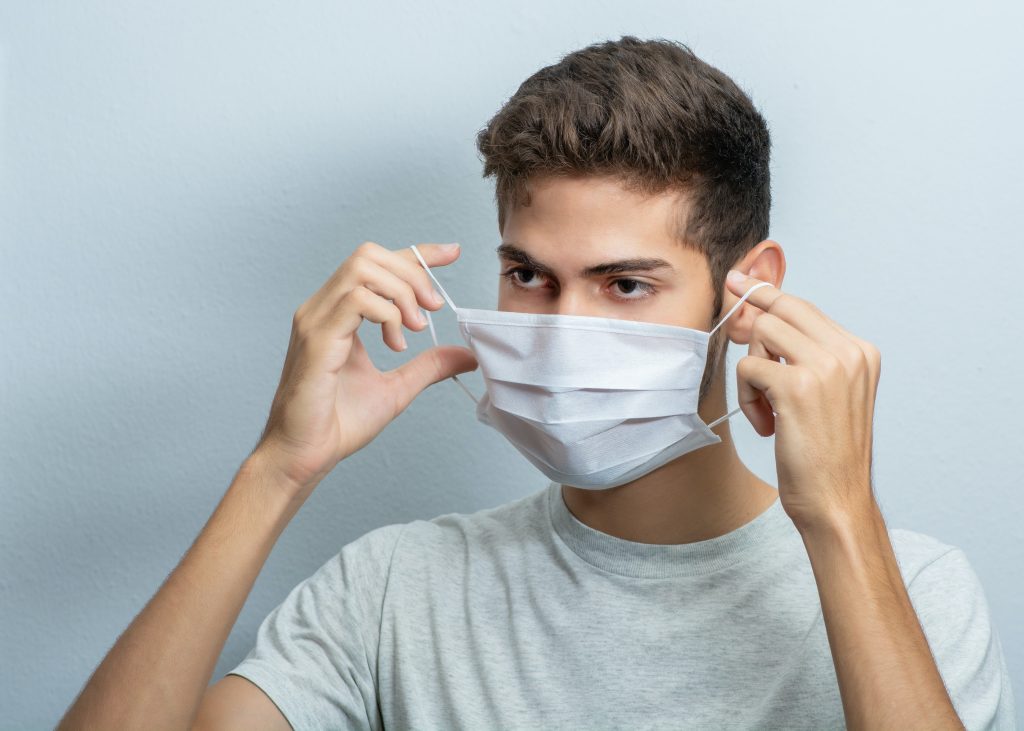Why Some People Still Wear Masks And It’s Not Because of COVID
One study found that people who perceive themselves as unattractive are more likely to wear a mask than those who think the opposite of themselves.
This article is more than 2 years old

Though many people consider us to be in a post-pandemic era now, you’ll still see a handful of people wearing masks as they go about their daily lives. While COVID concerns are still high for some people, research suggests that there might be other motivations behind mask-wearing. According to NPR, people are less likely to wear a mask if they perceive themselves as attractive, and the opposite holds true as well.
It’s all about presentation for some mask-wearers; in a study of over a thousand people, participants self-evaluated their attractiveness and reported on how likely they were to wear a mask when doing tasks such as walking the dog or doing a job interview. According to the study, the more attractive a person deemed themselves, the less likely they were to wear a mask. However, if a person rated themselves as only average in terms of attraction or even as unattractive, they were more likely to wear a mask.
The differences in the study likely have to do with how someone perceives a mask as adding to or detracting from their overall attractiveness. Frequent mask wearers might believe that the mask hides imperfections or has a neutral effect in a situation like a job interview, where making a good impression is important. But for those who think themselves attractive, wearing a mask hides an asset they find valuable in everyday life, but especially in something like a job interview.
All participants were less likely to wear a mask when walking a dog; the study hypothesizes that this is because appearances aren’t important when doing menial, everyday tasks like that. However, this supposition fails to take into account the lack of human contact in such a task and the fact that it’s outside, both of which are factors that might contribute to the decision to not wear a mask by someone that usually does. Though self-perceived attractiveness may contribute, consciously or subconsciously, to someone’s decision to wear a mask, there are still many pressing reasons to wear a mask that have nothing to do with appearance.
According to Yale Medicine, a new subvariant of Omicron was identified and is suspected to be the most transmissible strain of the virus yet. And while many Americans have gotten the first round of available vaccines, they’re less likely to get the boosters, especially the updated boosters designed to protect against the newer variants. And though we aren’t seeing surges in the news very often anymore, that doesn’t mean they aren’t happening; they’re just less publicized and sensationalized.
Many health organizations still recommend wearing masks in public when indoors, especially in transportation hubs, like on buses and in airports. Choosing to wear a mask also takes into consideration the most vulnerable in our society, many of whom are not able to experience a “post-pandemic” life because the general public has stopped taking measures to reduce the spread of COVID-19.
Even as we step into this new normal, it’s worthwhile to note that many cultures wear masks during everyday life when feeling ill, so as not to get anyone else sick; we might just take a leaf from their books as we build a post-pandemic world that works for everyone—attractive or not.



